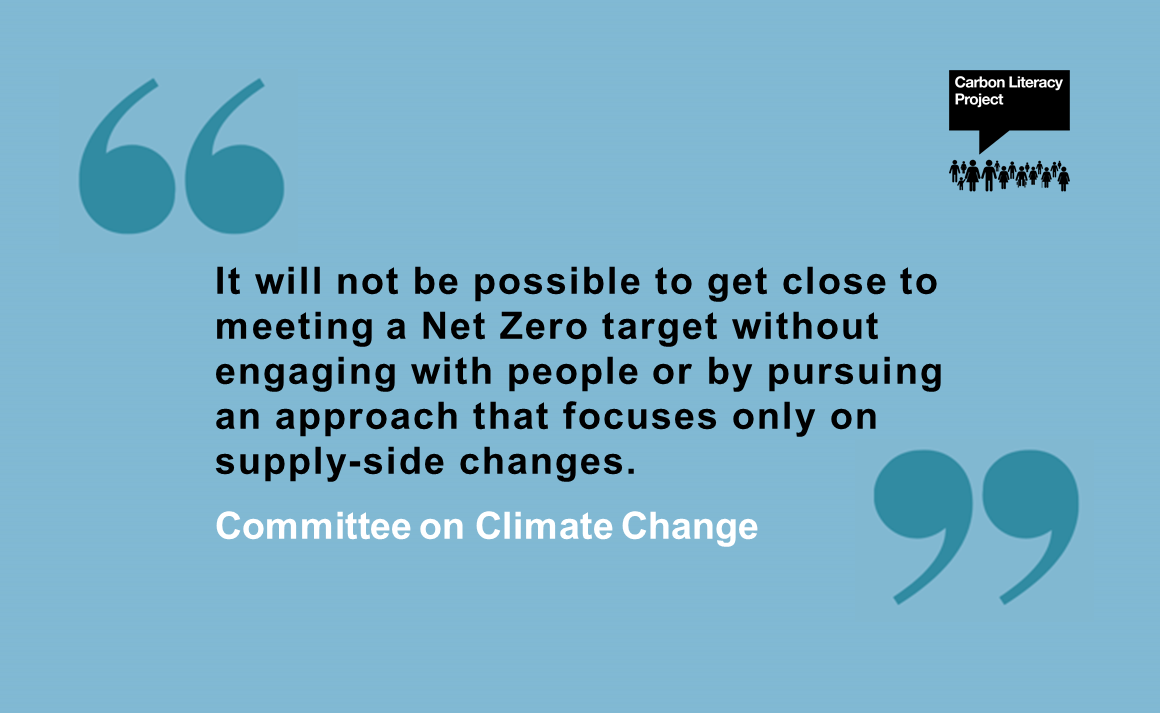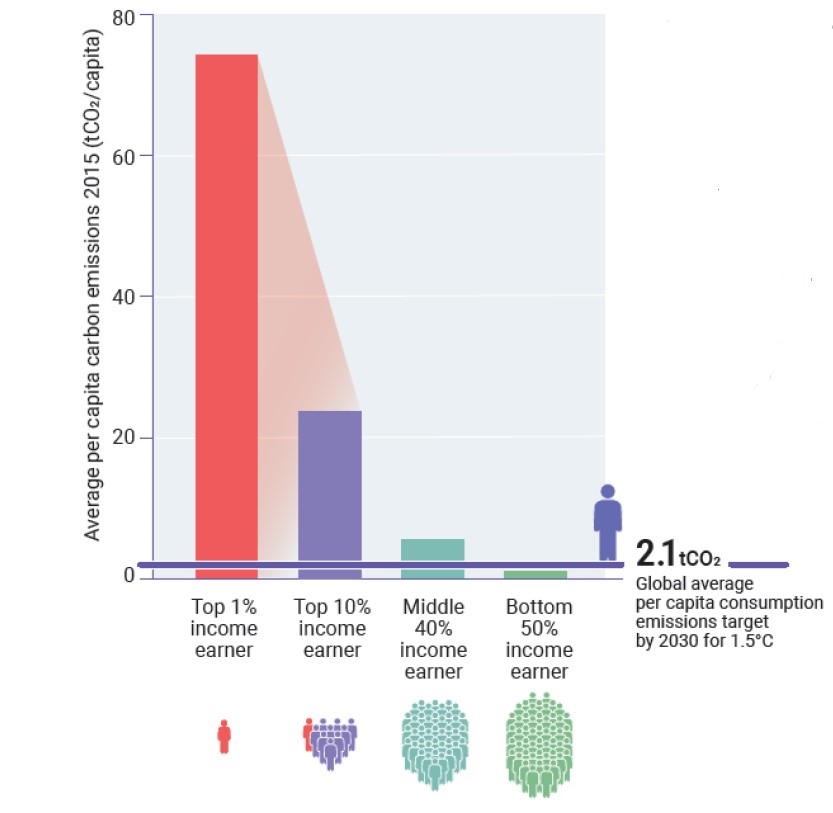Our News
Behaviour Change: The Role of Individuals

The Climate Change Act requires the UK to set carbon budgets to help to monitor progress towards climate change targets. ‘Carbon budgets’ are the proposed limits on the amounts of greenhouse gases (GHGs) that the UK can emit in a five year period. Last December, the CCC (Committee on Climate Change), the body which advises the Government on GHG emissions targets and preparing for and adapting to the impacts of climate change, published its policy recommendations as to how the UK Government can meet the sixth carbon budget. The sixth carbon budget, which will run between 2033 and 2037, is the first carbon budget period since the UK Government published its net-zero target. Last week the CCC ran a webinar covering the role of individual action in meeting the sixth carbon budget, the first in one of four webinars on how the UK can meet its net-zero targets.
The webinar highlights how nearly 60% of all policies require some element of behaviour change and that low-carbon technologies or fuels can only deliver 41% of the GHG emissions reductions needed to meet the sixth carbon budget. Consequently, it highlighted how ‘It will not be possible to get close to meeting a net-zero target without engaging with people or by pursuing an approach that focuses only on supply-side changes”. In other words whilst low-carbon technologies may be seen as the holy grail, that will save us from our climate change woes – in reality, if we are to meet our GHG emissions targets, we must also change our patterns of consumption.
A few weeks ago, Climate Outreach released a chapter in the United Nations Environment Programme Emissions Gap Report titled ‘Communicating lifestyle change’. This highlights that the wealthiest 10% of global citizens are responsible for 48% of GHG emissions. To put this into context, the wealthiest 10% of global citizens earn over £27,600 annually and the wealthiest 1% earn over £79,300. To restrict the global temperature rise to 1.5°C above pre-industrial levels, the average global GHG consumption-based footprint must be cut to 2.1 tons per capita by 2030 (see graph below) and 0.7 tons per capita to reach net-zero by 2050.

So what actions matter a little in terms of reducing our GHG footprint and what actions matter a lot? This is also answered by the Climate Outreach report (see table below) and in a related blog by Dr Adam Corner from Climate Outreach, which highlights that ‘The way we travel, the way we heat and power our homes, and the food we eat each account for about 20% of our individual carbon footprints.’
| Sector | Example | Median emission reduction potential (tCO2e) |
| Transport | Avoiding one long-haul return flight | 1.9 |
| Shifting to active travel e.g. walking/cycling | 0.8 | |
| Living car-free | 2.1 | |
| Replacing petrol/diesel car with electric vehicle | 2.0 | |
| Food | Reducing waste | 0.3 |
| Shifting to vegetarian diet | 0.5 | |
| Shifting to vegan diet | 0.9 | |
| Consuming more regional/local produce | 0.5 | |
| Residential | Using domestic renewable electricity | 1.5 |
| Retrofitting | 0.9 | |
| Heating homes using heat pumps | 0.9 |
COVID-19 has led to changes in the way that we live and consume resources. However, whether some of the increases in low carbon behaviours observed will continue post-lockdown remains to be seen. Without changing our behaviour and engaging and supporting others to do likewise, we will not reach net zero by 2050. As David McKay, a former chief scientific adviser to the UK Department of Energy and Climate Change puts it ‘If everyone does a little, we’ll achieve only a little.’
A recording of the Committee on Climate Change’s ‘Net Zero: The role of individuals’ webinar is available here
The webinar slides are available here
The Committee on Climate Change webinar featured in this blog post is the first of four in their pathway to net-zero series:
17th February: Net Zero: The role of business
24th February: Net Zero: The role of local action
3rd March: Net Zero: The need for joint action on adaptation
You can register for these webinars here